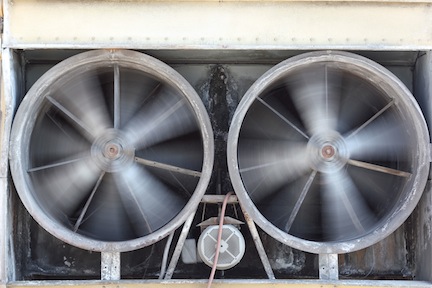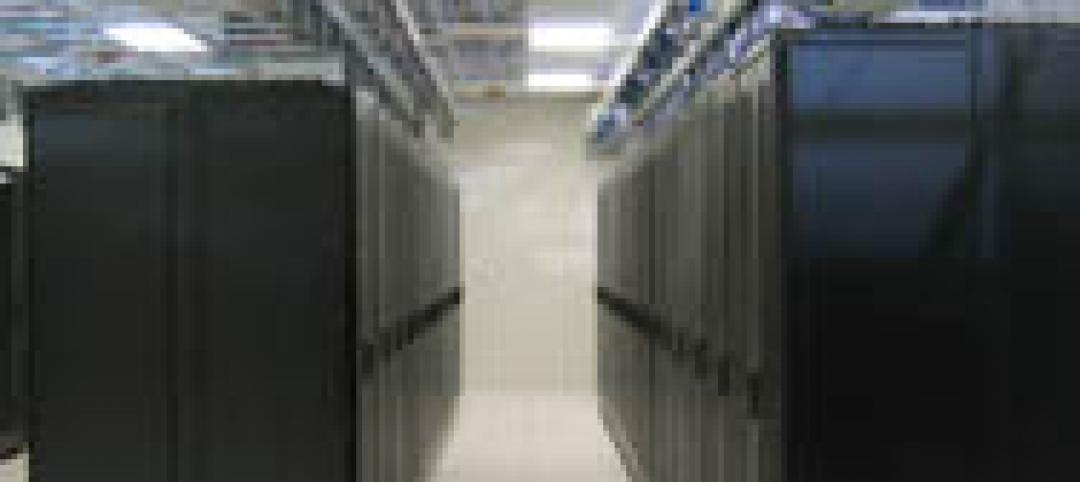Boulder, CO –Because the existing building stock dwarfs the amount of building space that is added on an annual basis, retrofits are a critical pathway to greening the world’s commercial buildings. Regulations and policy measures, technological advances, and cost reductions are all driving increased investment in energy efficiency retrofits. According to a recent report from Navigant Research, cumulative investment in commercial building energy efficiency retrofits will total $959 billion from 2014 through 2023.
“Led by the Asia Pacific region, the global market for energy efficiency commercial building retrofits is expected to grow at more than 7 percent a year through 2023,” says Eric Bloom, principal research analyst with Navigant Research. “While government mandates play an important part in driving this growth, many retrofit projects are being undertaken on a voluntary basis, as corporate sustainability initiatives spread.”
The payback periods for energy efficiency retrofit projects are slowly decreasing, according to the report, but they remain a critical factor for most building owners and managers. Tolerance for longer payback periods varies both by region and by building owner category. Only 15 percent of all energy efficiency retrofits are initiated with increased energy efficiency as the primary motivator, the report concludes.
The report, “Energy Efficiency Retrofits for Commercial and Public Buildings”, examines the global market opportunity for energy efficiency retrofits in eight different commercial and public building types. It analyzes the key market and technology issues related to energy efficiency retrofits, with a focus on the following product and service types: HVAC, lighting, controls, water efficiency, water heating, building envelope, power generation, commissioning, installation, and energy service companies (ESCOs). Global market forecasts for revenue, segmented by region, product and service type, and building type, extend through 2023. The report also assesses the demand drivers, business models, and standardization and regulatory factors related to energy efficiency commercial and public building retrofits and profiles the key industry players in this market. An Executive Summary of the report is available for free download on the Navigant Research website.
About Navigant Research
Navigant Research, the dedicated research arm of Navigant, provides market research and benchmarking services for rapidly changing and often highly regulated industries. In the energy sector, Navigant Research focuses on in-depth analysis and reporting about global clean technology markets. The team’s research methodology combines supply-side industry analysis, end-user primary research and demand assessment, and deep examination of technology trends to provide a comprehensive view of the Smart Energy, Smart Utilities, Smart Transportation, and Smart Buildings sectors. Additional information about Navigant Research can be found at www.navigantresearch.com.
About Navigant
Navigant is a specialized, global expert services firm dedicated to assisting clients in creating and protecting value in the face of critical business risks and opportunities. Through senior level engagement with clients, Navigant professionals combine technical expertise in Disputes and Investigations, Economics, Financial Advisory and Management Consulting, with business pragmatism in the highly regulated Construction, Energy, Financial Services and Healthcare industries to support clients in addressing their most critical business needs. More information about Navigant can be found at www.navigant.com.
* The information contained in this press release concerning the report, “Energy Efficiency Retrofits for Commercial and Public Buildings,”is a summary and reflects Navigant Research’s current expectations based on market data and trend analysis. Market predictions and expectations are inherently uncertain and actual results may differ materially from those contained in this press release or the report. Please refer to the full report for a complete understanding of the assumptions underlying the report’s conclusions and the methodologies used to create the report. Neither Navigant Research nor Navigant undertakes any obligation to update any of the information contained in this press release or the report.
Related Stories
| Sep 13, 2010
'A Model for the Entire Industry'
How a university and its Building Team forged a relationship with 'the toughest building authority in the country' to bring a replacement hospital in early and under budget.
| Sep 13, 2010
Data Centers Keeping Energy, Security in Check
Power consumption for data centers doubled from 2000 and 2006, and it is anticipated to double again by 2011, making these mission-critical facilities the nation's largest commercial user of electric power. With major technology companies investing heavily in new data centers, it's no wonder Building Teams see these mission-critical facilities as a golden opportunity, and why they are working hard to keep energy costs at data centers in check.
| Aug 11, 2010
Deutsche Bank towers set to become sustainable skyscrapers
BD+C Senior Editor Jay Schneider is currently taking a tour of Germany's most sustainable buildings. One of the projects he visited was the Deutsche Bank Headquarters, Frankfurt, Germany, one of the world's largest sustainable retrofits. The Deutsche Bank's twin towers (one 34 stories, the other 36 stories) are undergoing a massive $271 million retrofit that will turn the complex into the world's most environmentally friendly skyscraper, which will be renamed the Green Towers. BD+C, April 14
| Aug 11, 2010
ASHRAE Receives NIST Grant to Study IAQ in Retail Stores
The American Society of Heating Refrigeration and Air-conditioning Engineers (ASHRAE) has been awarded $1.5 million dollars in grant money from the National Institute of Standards and Technology (NIST) to conduct a three-year research project on ventilation and indoor air quality in retail stores.
| Aug 11, 2010
100th Green Globes building certified
The Green Building Initiative (GBI) recently certified its 100th building in the U.S. through the Green Globes environmental assessment and rating system.The Michael E. DeBakey Veterans Affairs (VA) Medical Center, located in Houston, received a rating of three Globes for achievements in energy efficiency and environmental management practices.
| Aug 11, 2010
Minneapolis Public Housing authority, Honeywell launch energy retrofit program
Minneapolis Public Housing Authority and Honeywell today announced a $33.6-million energy efficiency and facility renewal program that will help the housing authority improve its infrastructure, reduce its impact on the environment, and save more than $3.7 million in utility costs per year. Local contractors will also complete a majority of the work for the program, one of the largest of its kind for a public housing authority, helping boost the Twin Cities job market.
| Aug 11, 2010
The New Yorker's David Owen: Why Manhattan is America's greenest community
David Owen is a staff writer at The New Yorker and the author of 14 books, most recently Green Metropolis: Why Living Smaller, Living Closer, and Driving Less Are the Keys to Sustainability, in which he argues that Manhattan is the greenest community in America. He graduated from Harvard and lives in Washington, Conn., where he chairs the town planning commission.
| Aug 11, 2010
50% increase in green building programs since 2007
In the wake of an extended global economic slump, local communities are pushing ahead and expanding their green building programs. More than one in five U.S. cities with populations greater than 50,000 surveyed by the American Institute of Architects (AIA) report having a policy to promote green buildings, accounting for more than 53 million people.
| Aug 11, 2010
Sustainable Buildings as Teaching Tools: 4 Strategies for Integrating Buildings into Experiential Learning
4 Strategies for Integrating Buildings into Experiential Learning
| Aug 11, 2010
Las Vegas announces Green Building Rebate Program
The city of Las Vegas announced it will begin a Green Building Rebate Program to stimulate new green building construction and provide energy efficiency retrofits to existing buildings. The green building program provides rebates for new construction and existing commercial and residential retrofits for buildings who construct buildings or projects to green building program standards.









